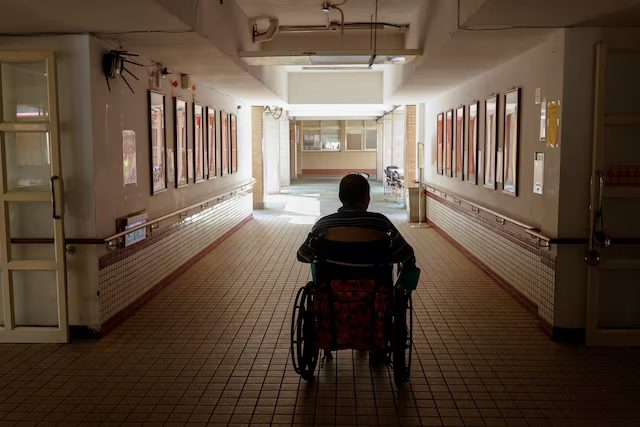US Supreme Court weighs retirees’ ability to sue for disability bias
January 13, 20255:02 PM CST

Jan 13 (Reuters) – The U.S. Supreme Court on Monday considered whether retirees can sue their former employers for disability discrimination after leaving their jobs, an issue that has divided lower courts and could make or break many lawsuits over retirement benefits.
The justices heard oral arguments in a bid by Karyn Stanley, a firefighter in Sanford, Florida, who retired after she was diagnosed with Parkinson’s disease, to revive her lawsuit claiming the city discriminated against her by ending a health insurance subsidy she received earlier than some other retirees.
Sanford covers insurance costs for workers who retire after 25 years of service until they turn 65, and had previously done so for employees who retired due to a disability regardless of how long they worked for the city. But while Stanley worked for the city, it changed its policy to limit coverage for disabled retirees to 24 months after they stopped working.
The Atlanta-based 11th U.S. Circuit Court of Appeals said, opens new tab that because Stanley had not alleged that she was discriminated against while she was employed by the city, she could not sue under the Americans with Disabilities Act (ADA). The law prohibits discrimination against workers with disabilities who are otherwise qualified for a job.
It was not clear how the Supreme Court was leaning during Monday’s arguments, which lasted for nearly 90 minutes, but Justice Samuel Alito suggested that the ADA’s anti-bias protections were not meant to apply to retirees. He noted that cases brought under the law “almost always” involve requests for workplace accommodations, which would not apply to an employee who has retired.
“What is the discrimination here?” Alito asked Stanley’s lawyer, Deepak Gupta. “How is a court supposed to determine whether this distinction between somebody who works 25 years and somebody who … retires based on disability is unlawful?
Gupta said that Stanley would have completed 25 years of service if not for her disability, and so she was treated differently than workers who did not have disabilities.
The city in court filings has said its policy was lawful and necessary to contain costs on employee benefits.
Countering Alito, the court’s three liberal justices all suggested that Stanley could sue because she was qualified for her job when the city adopted its policy and while she was working to earn her retirement benefits.
Stanley also alleges that the discrimination against her began two years before she retired, when she first received her diagnosis, Justice Elena Kagan noted.
“I’m suggesting … she’s a qualified individual doing the job such that she’s putting herself in line for a package of retirement benefits,” Kagan said to Jessica Conner, who argued for the city.
Conner said the policy only applied to people like Stanley who retired because they could no longer work as a result of a disability, which meant that by definition they were not qualified for their jobs.
“When [Stanley] was post-retirement she was unqualified, totally disabled and unable to perform the essential functions of her job, which takes you outside of the protections of” the ADA, Conner said.
The court is expected to decide the case by June.
The case is Stanley v. City of Sanford, Florida, U.S. Supreme Court, No. 23-997.
For Stanley: Deepak Gupta of Gupta Wessler
For the city: Jessica Conner of Dean, Ringers, Morgan & Lawton
Read more: US Supreme Court to decide if retirees can sue for disability bias